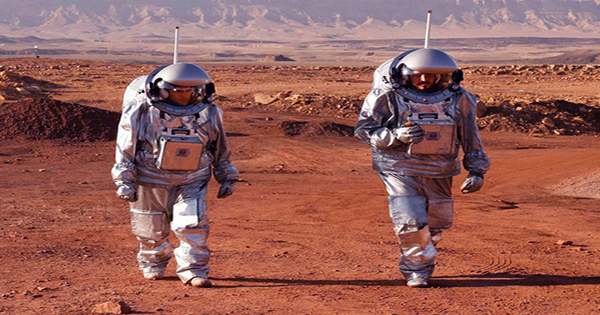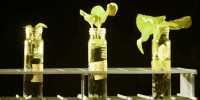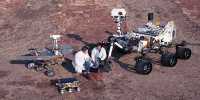It is almost inevitable that humanity will step foot on Mars in our lifetimes. If the modern-day space race between private firms and states continues, a long-term human presence on the Moon or Mars in that time range is not out of the question, an astonishing yet ridiculous thought.
But – and there is a major but — no one knows how a crew of astronauts separated from home by over 380 million kilometers (236 million miles) would fare in such a scenario. Would they be able to keep regular contact with Earth and function as a cohesive unit?
Alternatively, would they devolve into chaos, shutting off connection with their masters and establishing an independent colony? By putting a group of people in a Mars colony simulation, Russian researchers want to figure it out before spending billions on the actual thing.

Project SIRIUS (Scientific International Research In Unique Terrestrial Station – yeah, they cheated a little to make the name hip) is an attempt to better understand astronauts’ psyche during extended space missions.
The findings were just published in the journal Frontiers in Physiology. In 2017, seventeen and 120-day isolation studies were conducted to replicate a crew trapped in an alien environment, respectively.
The results verified their fears: the astronauts separated from mission control and were practically independent as a result of the delay in communication caused by the distance, along with the lengthy stay away from Mother Earth.
Previous simulations predicted that after the astronauts started on their journey, they would likely disengage from mission control, limiting the number of scenarios they would report on. The researchers used a mixed-gender, worldwide crew to conduct the two isolations in order to corroborate the outcomes of prior simulations, including the Mars-500 missions. The missions designed to see how successfully participants communicated with mission control and collaborated to build a viable colony.
They began with a take-off process before landing in an unfriendly atmosphere within the training facility’s specialized region. The crew was then confined to pods, given minimum meals and supplies, and subjected to the entire isolation of the real thing. The trials led to a range of results, some of which were favorable and others, which were more troublesome. At the midway point of the simulation, which featured the Mars landing, the crew actually increased their connection with the mission control center (MCC), but then grew disconnected, lowering the amount of communication with MCC. They became increasingly self-sufficient as they adapted to their task, relying less on MCC’s instructions.
While it is commendable that the crew was able to take issues into their own hands and live independently, the lack of communication with MCC is concerning. In a statement to CNET, co-author Dmitry Shved of the Russian Academy of Sciences and the Moscow Aviation Institute said, “The negative side is that mission control loses the ability to understand the needs and problems of the crew, which consequently hinders mission control’s ability to provide support.”
There was also an intriguing link between the male and female members of the team. Women reported difficulties to the MCC more frequently and showed support, similar to prior studies, and their communication methods were more emotional.
Men, on the other hand, were less likely to report to MCC. Surprisingly, both men and women had adapted to one other’s communication patterns by the conclusion of the simulation, generating a comparable degree of emotion and communication regularity.
Of However, because the simulations involved just 12 people, it is conceivable that variations between groups and individuals are attributable only to individual differences, thus generalizations cannot form until further study done. Meanwhile, a new Project SIRIUS experiment has begun, featuring an eight-month isolation period that began on November 4.















